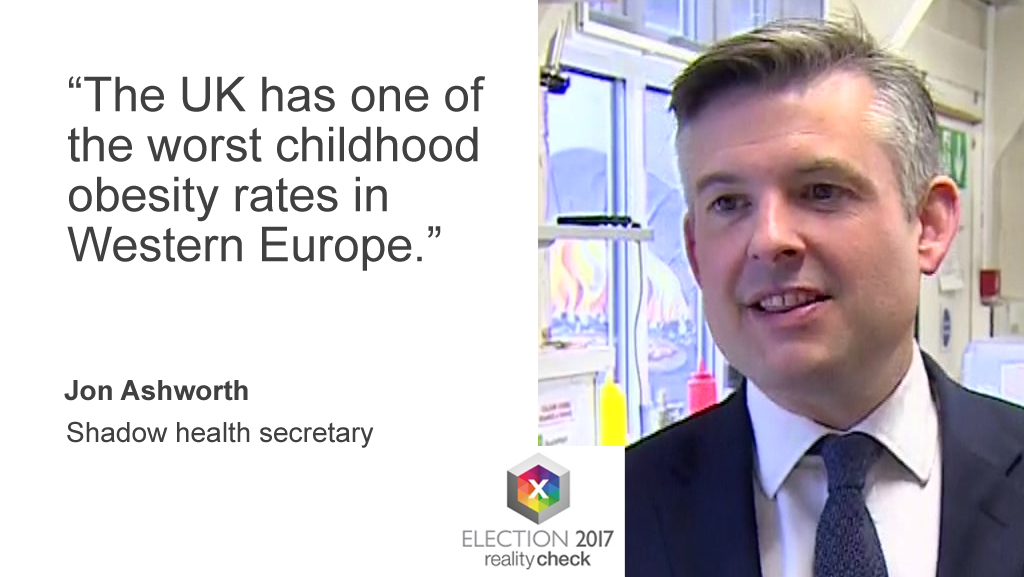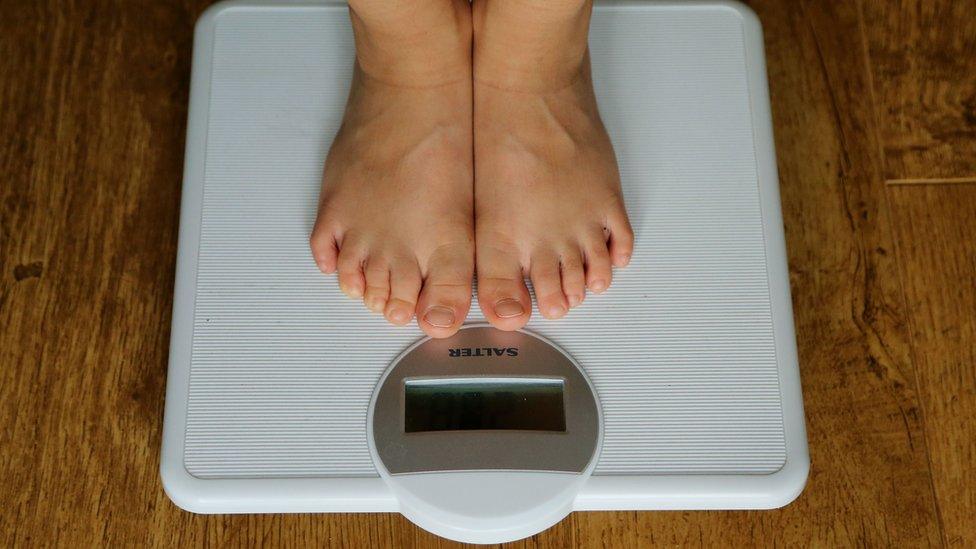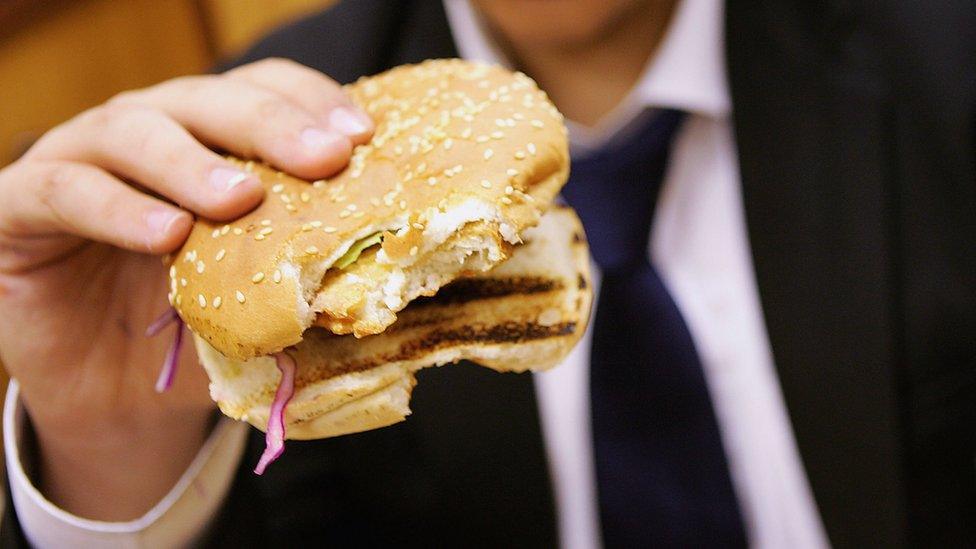General election 2017: Is UK among worst in Western Europe for child obesity?
- Published

The claim: The UK has one of the worst childhood obesity rates in Western Europe.
Reality Check verdict: It's hard to compare like for like as different countries record rates in different ways but the best international comparison suggests, at least in England, childhood obesity is higher than the EU average.
Labour's shadow health secretary Jon Ashworth has said that the UK has "one of the worst childhood obesity rates in Western Europe" as the party unveiled a pledge to ban TV ads for junk food before the 21:00 watershed.
The best evidence available suggests the UK does have one of the highest proportions of overweight and obese children, both in the EU and compared to a range of other industrialised nations around the globe.
The OECD, a group of 35 industrialised countries, published a report in 2016, external looking at childhood obesity.
This found that, out of the 26 countries featured in the report, UK children are more obese than the EU average. The OECD uses data for England only as a proxy for the UK, however.
Countries record childhood obesity data for different age groups and so it is difficult to compare like-for-like.
This report compares children of different ages in different years.
In England in 2014, 23% of boys aged from six to 15 and 27% of girls in the same age group were overweight or obese, ranking the country eighth most overweight in the study.

In England in 2014, 23% of boys aged six to 15 and 27% of girls were overweight or obese
Even across the UK, children are measured at different ages:
In England in 2015-16, 22% of children aged four to five and 34% of children aged 10 to 11 were overweight or obese
In Wales in 2014-15, 26% of children aged four to five were overweight or obese
In Scotland in 2015, 16% of children aged seven to 11 and 15% of those aged 12 to 15 were described as being "at risk of obesity"
In Northern Ireland in 2015-16, 25% of children aged two to 15 were overweight or obese
Childhood obesity has been increasing worldwide and in the UK, obesity in general is estimated to cost, external the economy £27bn a year, and the NHS around £5bn, in treating related illnesses.
Junk food ban
Labour is proposing to ban the advertising of junk food on pre-watershed TV, something the current government shied away from doing in its childhood obesity strategy published last summer.
Campaigners had recommended the government introduce advertising restrictions and compulsory sugar reduction in food. Instead it introduced a voluntary target of reducing the sugar in certain foods by 20% by 2020 among other mostly voluntary targets.
Around 70% of the 53 countries that form the World Health Organization's European region have partially or fully implemented restrictions in the marketing of food to children.
Throughout the UK, there is already a ban on advertising unhealthy food during children's TV programmes which is due to be extended to print and online media this July.

Public Health England says marketing can influence the food purchasing choices of children
Labour's pledge focuses on family-friendly TV which is not specifically aimed at children, currently not covered by the restrictions.
Ofcom estimated that the amount of advertising for unhealthy food children were viewing fell after the ban was implemented.
But researchers at Newcastle University in 2012 did some detailed analysis of all individual foods advertised and found that children were in fact being exposed to as much advertising for unhealthy food after the ban as they were before it, because they were viewing more adverts for food and drink during programmes not specifically targeted at children.
Public Health England, the government body responsible for looking after the nation's health, agrees that current evidence suggests marketing influences the preferences and food purchasing choices of both children and adults.



- Published8 May 2017

- Published30 March 2017
